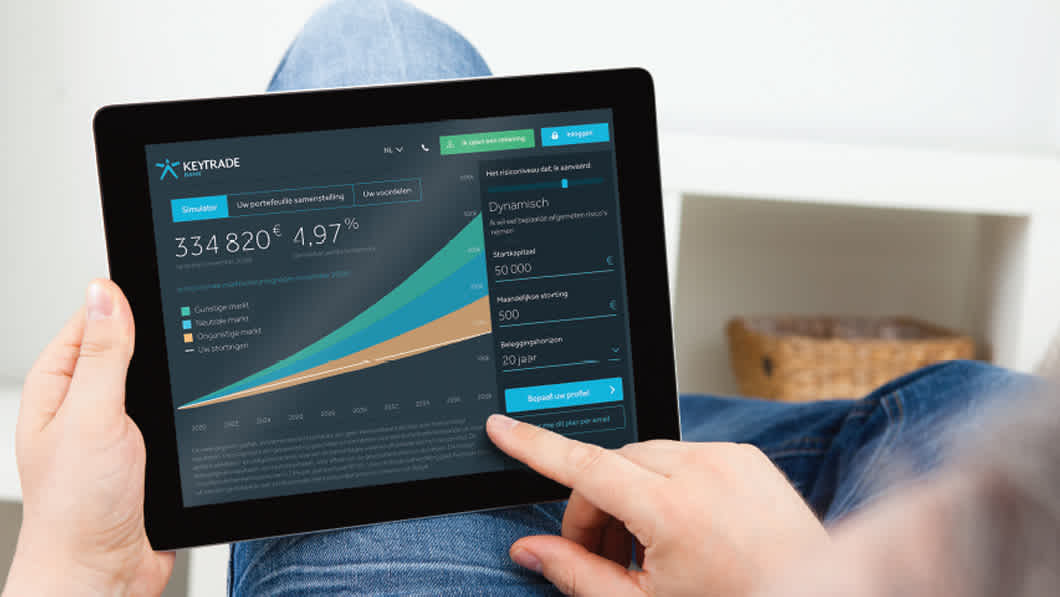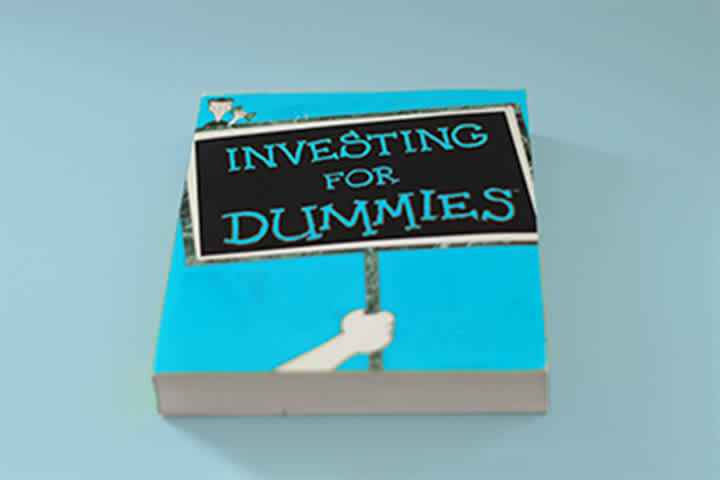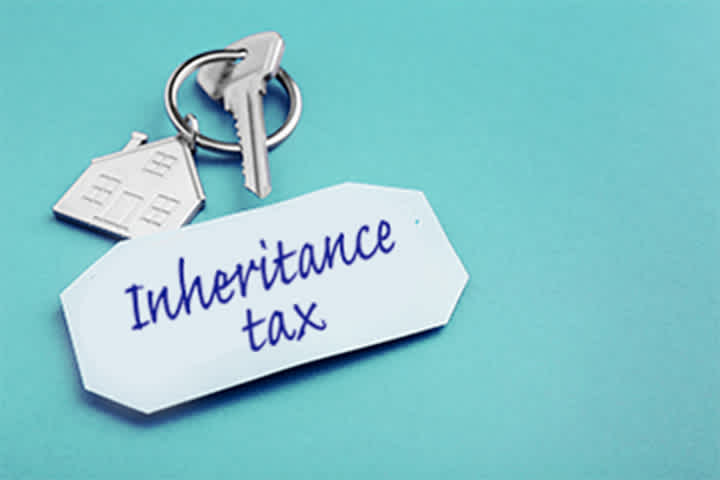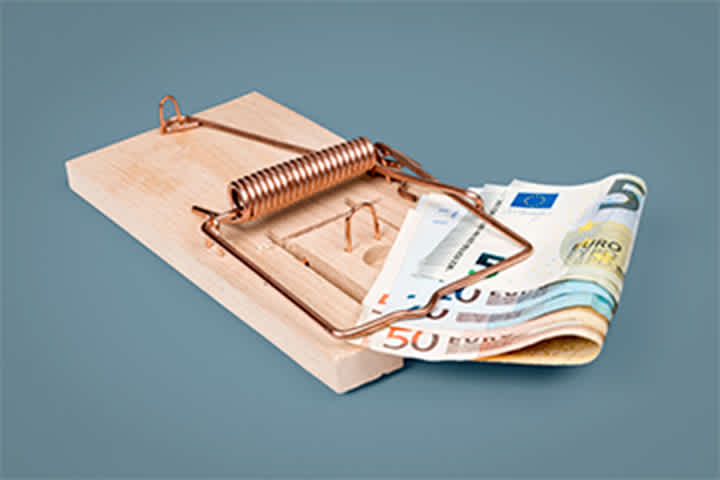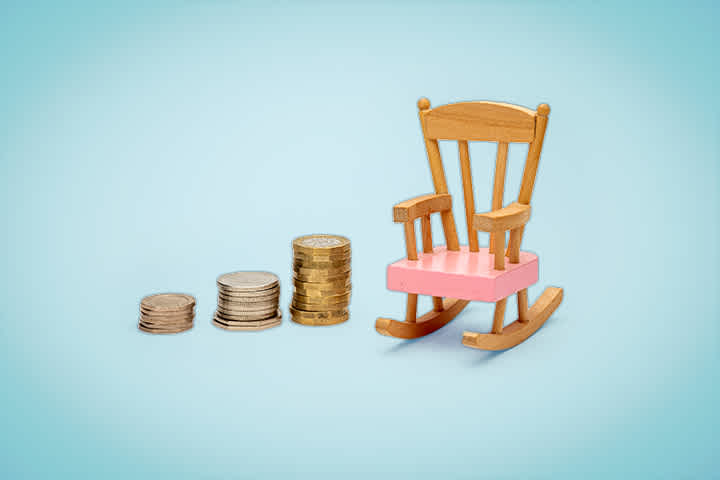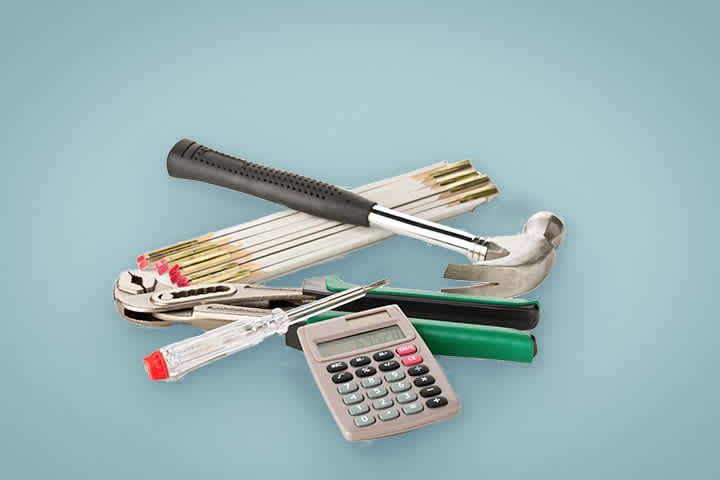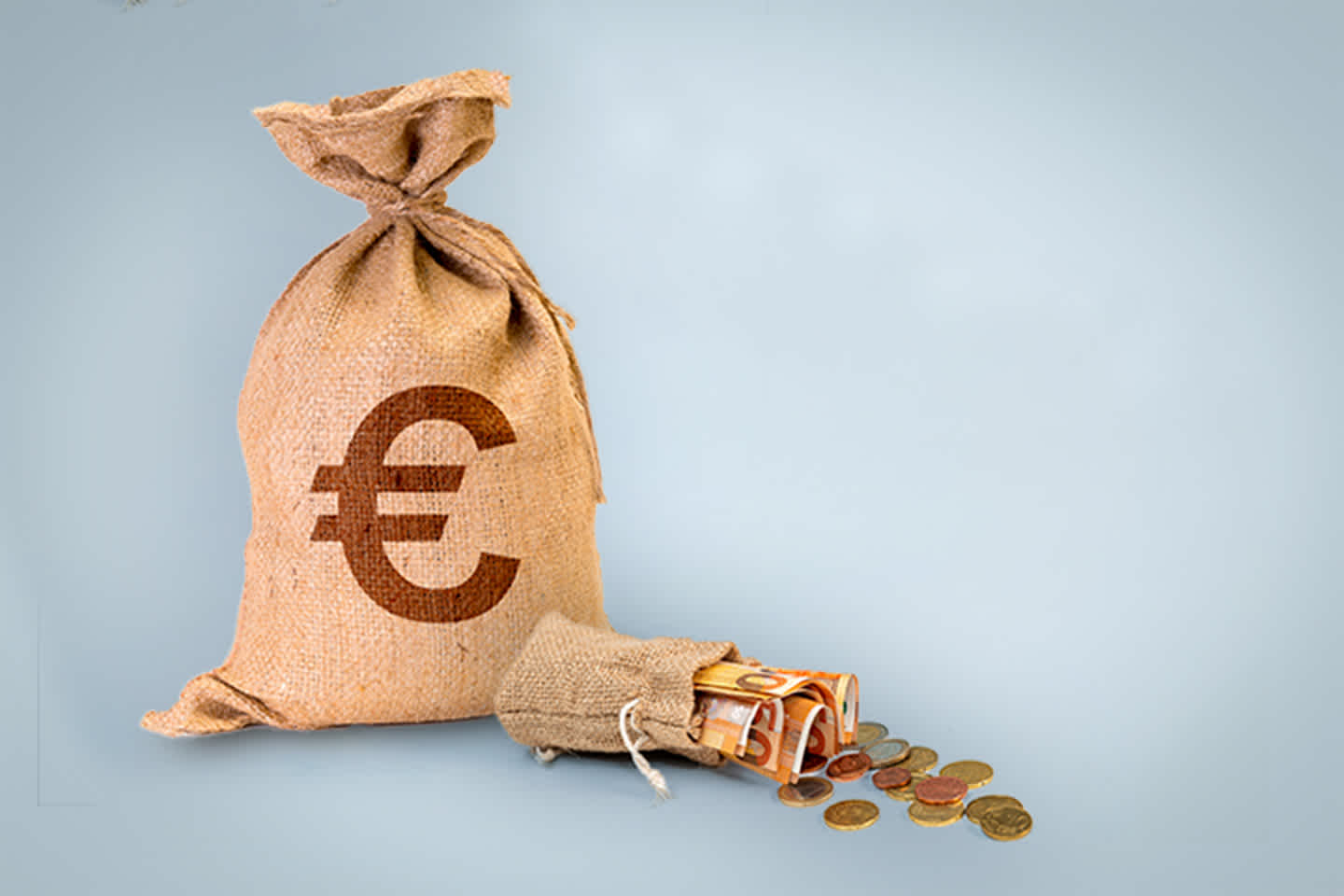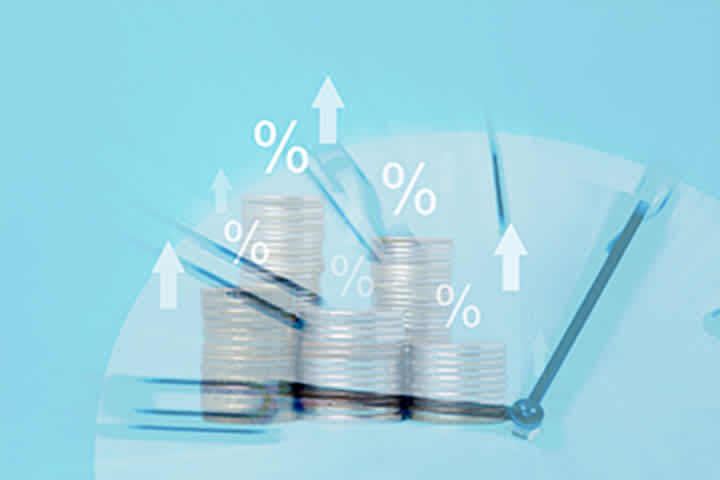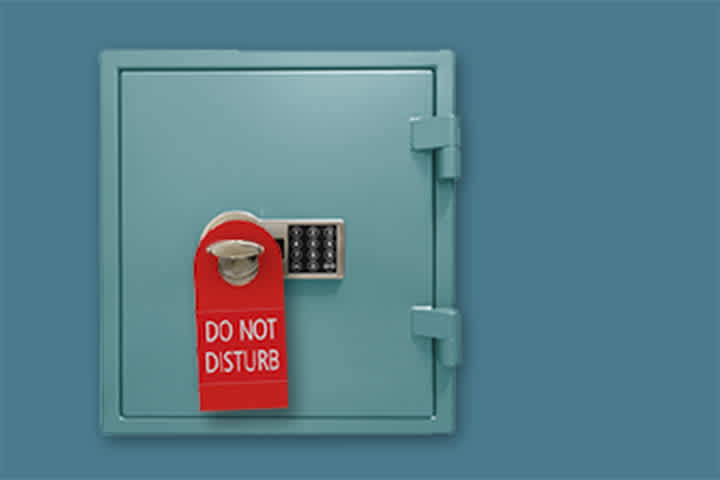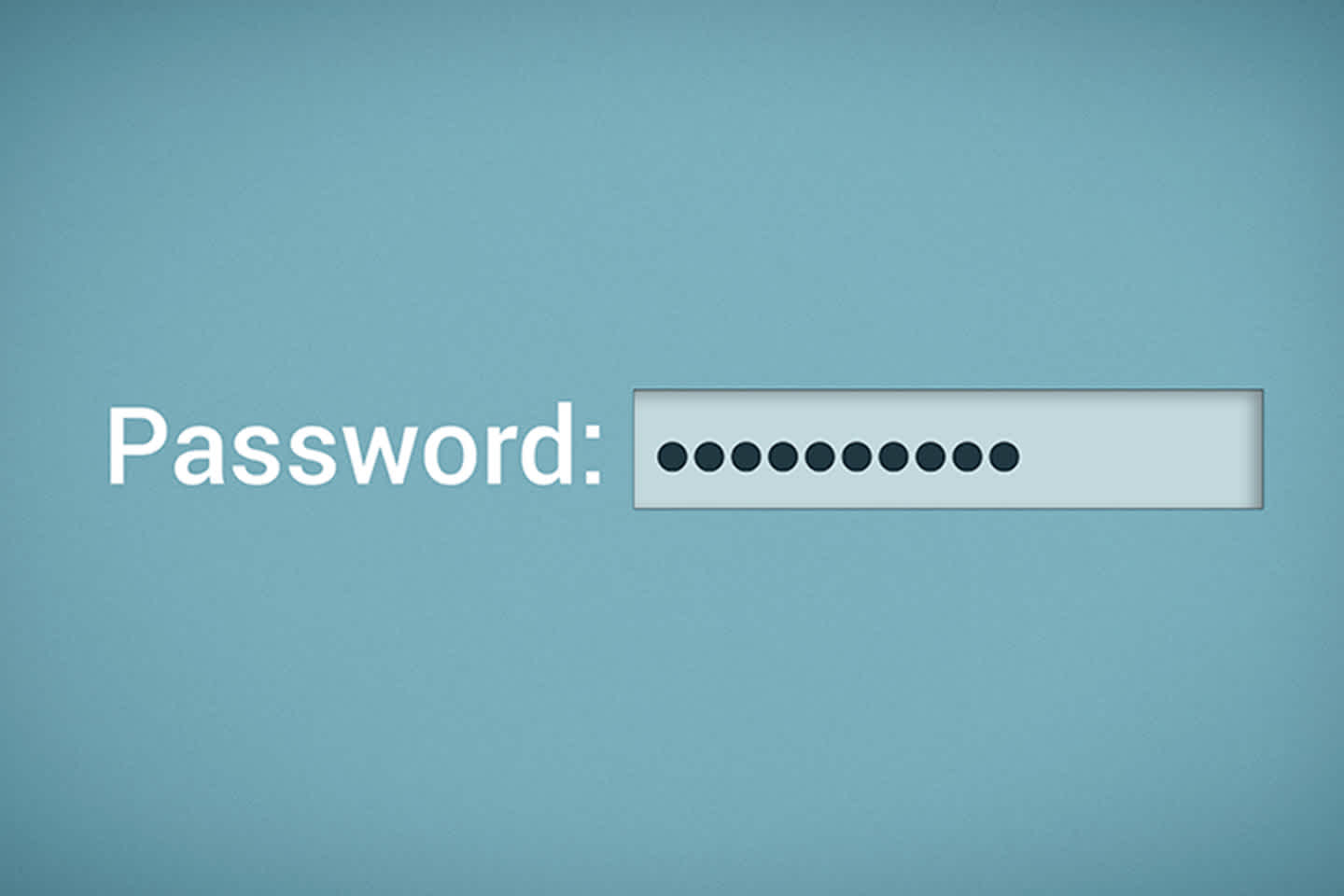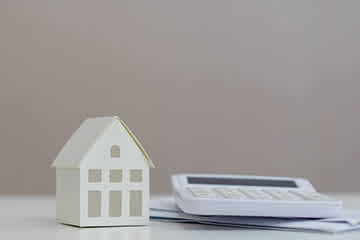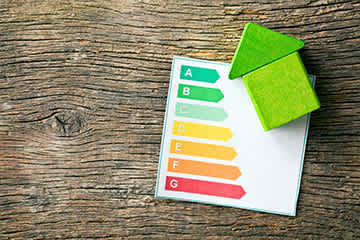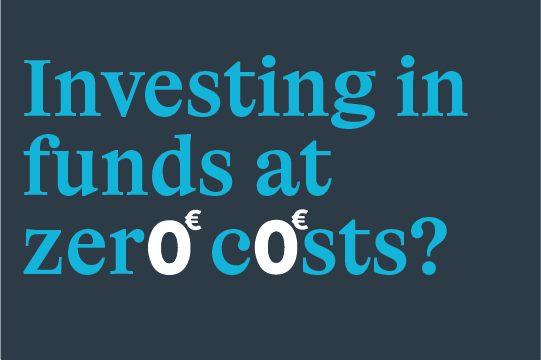Borrowing for a second home: what are your options?
Keytrade Bank
keytradebank.be
March 19, 2024
3 minutes to read
You’ve dreamed for so long of a place of your own by the sea to go listen to the waves regularly. Or you've set your sights on a lucrative apartment in the heart of the city, ideal for renting out. Great ideas! However, right now you still have a loan for your own home. Can you simply borrow again for a second home? Is it financially possible? And what about the tax situation? Here's an overview.
How can you borrow money for a second home?
If you still have a loan running, there are two potentially attractive financing options available to you:
- You can take out a completely new mortgage loan on top of your current loan
- You can re-borrow the equity under your existing loan
1. A second, completely new mortgage loan
In the same way as when financing a first family home, you can opt for a new mortgage loan for a second home or an investment property. The application process itself is not very different to that for a first mortgage loan. For example, you need to involve a solicitor again and pay registration fees.
However, a number of varied conditions will be considered if you want to take out an additional mortgage:
Down payment: a second mortgage loan may require a higher deposit from you than a first loan, to compensate the increased risk for the bank.
Income stability and level: are you financially stable enough to repay two mortgage loans at the same time?
Existing debt commitments: your existing debt commitments, including your first mortgage loan, are evaluated in more detail, to establish your overall debt ratio.
Rental income: for investment properties, banks will also look at the potential rental income that the property can generate. However, it is unlikely that 100% of these revenues will be included in the calculation. As a landlord, you are liable for certain (sometimes unforeseen) costs such as maintenance, new investments, withholding tax, etc.
Property value: the bank will take a very close and careful look at the value of the second property, and the ratio of the loan to that value.
Use of the property: will the property be used for rental, as a holiday home, etc.? The usage can also impact the assessment and terms of the loan.
Please note: when you switch from one to two mortgage loans, a number of game-changing points will logically come into play. Both for the bank and for you as customer:
- Having two simultaneous loans increases your level of financial risk for the bank, and may therefore lead to higher total costs.
- Managing two separate loans can lead to more complex administration and repayment processes. Work with a bank that is able to assist you properly with this.
- You need to provide a second form of collateral.

Just like when you finance your first family home, you can opt for a new mortgage loan for a second home or investment property. But that’s not the only option you have.
2. Releasing equity through your existing mortgage loan
You may already be quite a way along with the repayment of your first mortgage loan. In that case, an equity release may be an attractive approach.
What this means in practice is that you re-borrow the capital you already repaid on your first loan to finance your new loan at the interest rate that applies now. For this approach, you do not have to submit new guarantees via the solicitor and you save on the deed costs.
On the other hand, there is the risk that your first home will also serve as collateral for your second loan. If you are unable to repay your loan, the bank can put your home up for sale.
Which is the most logical choice for you?
The arrangement on which you ultimately decide to agree with your banker will depend on several factors:
- How much do you actually need?
- What financial guarantees can you offer the bank?
- What are the terms and conditions of your current mortgage loan?
How much can you borrow for a second home?
How much you will ultimately be able to borrow from the bank will be determined, among other things, by your income, existing debts and the value of the property in question.
Banks will scrutinise your financial situation in detail in order to assess your repayment capacity as closely as possible. In general, the banks are indeed willing to lend for a second home, but the conditions may be stricter than those for a first mortgage.
Are there any tax benefits attached to a second home?
Sadly, no. Since 1 January 2024, the capital repayments and the premiums for loan balance insurance relating to a mortgage loan for a second home are no longer tax deductible. However, there is still a tax reduction available on the interest.
What are your chances of success?
In a nutshell, how quickly you will be able to borrow for a second home is anything but a no-brainer. Both you and your bank need to make a carefully considered decision with a view to a secure future.
How well are you doing today? How good are your chances of getting the green light straight away for a mortgage loan for a second home? We can already give you a very good estimate. Run the Keyhome simulation now and take the first important step towards your new home.
Other articles that might interest you
![blogHeader-taxeRent]()
Rental income and taxes: what every landlord should know
![iPad]()
Monthly video 2025
![blog-InvestingFor]()
A beginner's guide to buying shares in five steps
![blogHeader-Tesla]()
Is Elon Musk about to crash Tesla shares?
![blogHeader-RIP]()
Your family member dies: how to manage their banking
![GraphOfTheWeek]()
American optimism reversing: time to head for the exit?
![blogHeader-GeldLenen]()
Lending money to family or friends: do you have carte blanche?
![blogHeader-kostenAamkoo]()
What costs are involved in buying a home?
![Defensieaandelen]()
An investment guide to Europe's military resurgence
![blogHeader-EuropeseBank]()
Are European bank stocks experiencing a renaissance?
![blogHeader-Aristo]()
Dividend aristocrats: a good beginner investment strategy?
![blogHeader-tax]()
Capital gains tax: who can escape and who will pay?
![iPad]()
Monthly video 2024
![blogHeader-SmallInvest]()
Investing when money is tight: being ambitious pays off!
![Blog-Header-Invest?]()
What is investing, and why is it an option for you?
![blog-donation-3]()
Married, cohabiting or in a non-cohabiting relationship: the impact on gifts and legacies
![blogHeader-TestamentScr]()
Writing your own will? Avoid these 10 mistakes
![blog-zorgvolmacht]()
12 questions and answers about a lasting power of attorney
![blog-inheritanceT]()
What if you are unable to pay the inheritance tax?
![blogHeader-donation]()
Want to fit in a gift before the end of the year and avoid paying gift tax?
![blogHeader-Trap]()
What you need to know before you start dividend investing
![pension pilars]()
Start growing your pension sooner rather than later
![blogHeader-MonthlySavin]()
What monthly pension savings for a maximum return?
![blogHeader-Lifetime]()
Lifetime pension savings: the sooner you begin, the more you rake in
![blog-DatingApp1]()
What if pension savings were like a dating app?
![blogHeader-mythes]()
Myth busters: 5 myths vs. facts about pension savings
![blogHeader-Pensionsav]()
Pension savings: save the grey hair for later
![Woman lying down in a hamac on a terrace]()
Passive investing: less effort for a better return
![blogHeader-retiredVersi]()
What would the retired version of you say to yourself?
![blogHeader-renteloos]()
Which loan is the best fit for your renovation project?
![blogHeader-1KeerBeleg]()
Lump-sum investing vs cost averaging: which offers the highest return?
![blog-whenInvest]()
When should you start investing? Seven potential key moments in your life
![Newspaper with ETF's circled in red, a red pen and a magnifying glass on top]()
What is a tracker and how do you choose the right one?
![blog-EpargeEnfant]()
How can you teach your child to save? 12 tips
![blog-header-pocketMoney]()
Why a child deserves pocket money
![blogHeader-financial in]()
Are there shortcuts to becoming financially independent?
![Blog-header-sleepingAccount]()
Do you have a dormant account? This is how you can check!
World Cleanup Day
![blogHeader-Password]()
Have a password manager on your cybersecurity checklist yet?
![Fishing per post]()
Scam letters are back (even though they never really went away)
![blog-spaargeld]()
Guide: how much you need in savings
![Active ETF]()
Actively managed ETFs: the best of both worlds?
![blogHeader-InvestFood]()
6 reasons to invest in food
![blog-ZonderGeldzo]()
Checklist: travel without any money worries
![sharing-data 1153889713]()
Take a moment to read this before sharing your data
![belgian-shares 1908487531]()
Investing in Belgian shares: the dangers of too many domestic securities
![untaxed-side-jobs 1913883895]()
Untaxed side jobs: what is allowed and what is not (any more)?
![pay-favourite 1835827360]()
Investors, never pay too much for your favourite share!
![IT]()
Who's who at Keytrade Bank? Who answers the phone when you call us?
![IT]()
Who's Who? Visiting IT
![Man and woman embracing with a key in hand]()
Buying real estate together? Consider a rights of survivorship clause
![blog renovationLoan]()
Taking out a loan for energy-saving renovations: what are your options?
![house-flipping 330509387]()
House flipping: is it worthwhile?
![friends-cheaper-travel 1680186190]()
What your friends forgot to tell you about cheaper travel
Investing in football shares: what's the score?
![blogHeader-SpaarrentenV]()
Comparing savings accounts: where do you put your money?
![blogHeader-ValseVacatur]()
Watch out for recruitment scams
![Graph of the week]()
Europe is no longer falling behind!
![blogHeader-SparenVoorKi]()
How can I invest or save better for my child?
![blogHeader-Online reken]()
Opening an online bank account: what is holding you back?
![trackers capi-distri]()
The difference between distribution and accumulation for funds or trackers
![blogHeader-Vastgoedaand]()
Property shares: ripe for a comeback?
![Graph of the week]()
Is joining the BEL20 actually good for you?
![blog-romanceScamm]()
Online dating scams: tips to protect yourself
![Graph of the week]()
Can we still say "Magnificent Seven"? Or should it be "2 Unlimited "?
![blogHeader-ZelfOfLaten]()
Invest yourself or have someone do it for you: do you have to choose?
![Blog-Loan]()
How much can you borrow for a home?
![tell-tax-man 1044303100]()
What do you have to tell the tax man about your money and investments?
![iPad]()
Monthly video 2023
![shopping-online 1469785070]()
Shopping online: 7 tips and points to consider
![Image article small caps]()
Small company shares with big opportunities?
![Picture article gold]()
Golden days? Why to invest in gold (or not)
![roerende voorheffing]()
Exemption from withholding tax on dividends
![Seasons greetings]()
Looking back on 2023
![Photo article challenges stock investor]()
Will bonds beat shares in 2024?
![Watch out, danger's about]()
Watch out, danger's about
![blog-DigitalHerit]()
Will AI replace human investment advisers?
![extra-softkey]()
Don't forget to create an extra access!
![blog-short]()
Shorting: what is it and how does it work?
![blog-goldenRules]()
The 10 principles of stock market success
![blog energyInvestment]()
How to invest in the energy transition?
![qd code fraude]()
Read this before you scan another QR code
![padel header]()
Good positional play is important!
![free-credit-cards]()
Keytrade Bank has one of the few free credit cards on the Belgian market
![hacker cat]()
How to put phishers out of a job
![inde2]()
Is India the new China?
![KNEWS 2307 Padel]()
Padel has got a new doubles partner with Keytrade Bank
![Geert Van Herck]()
Investors are not afraid of risks! Or not yet?
![nervous-stock-market-200days-moving-average 534464629]()
Get ready for the last quarter!
![Biodiversity]()
Investing in biodiversity: can Wall Street save the rainforest?
![blog-DigitalHerit]()
Don't forget to make arrangements for your digital estate
Investing in AI: hype or a ticket to the future?
![blog-savingForSak]()
Saving for the sake of saving? Or with a goal in mind?
![blog-PrepareYours]()
How do you prepare financially for a longer life?
![blog-Recession]()
Handling recessions: a manual
![blog-sellInMayAndGoAway]()
Sell in May? Is it really such a good idea?
![myth-sustainable 1059639044]()
Make an impact with your Keyprivate
![Mortgage Wallonia]()
New reductions in stamp duty for home buyers
![diversification]()
How much diversification is enough for your portfolio?
![KID eurosign]()
From KIID to KID: new rules, better investment decisions
![intelligent mobility]()
Which investment opportunities are available on the road to smart mobility?
![blog endOfAmericanHegemony]()
Is the end nigh for American dominance?
![blog healthcareInvestment]()
A vitamin shot for your investments
![blog waterInvestment]()
Does water earn a place in your portfolio?
![Bonds]()
Bonds to rise in 2023?
![PEB]()
Don't forget to include your EPC in your credit application
![iPad]()
Monthly video 2022
![keytrade-nature-trail 474489556]()
A Keytrade Bank Nature Trail? Yes, please.
![equity-investors-economic-data 1891162513]()
What is technical analysis and how does it work?
![Product Owner of our Data Department, Damien Hegarty]()
Who's who at Keytrade Bank? Data first
![Funds for free]()
Less costs? Yes, please.
![situation-russia-ukraine 1924764779]()
The situation following the Russian invasion of Ukraine
![something-new-investment-world]()
There's something new in the air in the investment world!
![thematic-funds 530010547]()
6 points to consider for thematic investing
![flanders-renovation 462881602]()
Property transfer tax – how much is this tax?
![monetary-policies-brake-stock-market-upturn]()
Is tighter monetary policy acting as a brake on the stock market upturn?
![donate-to-charity 1854854632]()
How can you donate or leave a legacy to a charity?
![close-possible-staff 69329]()
As close as possible to staff
![keytrade-nature-trail 474489556]()
A Keytrade Bank Nature Trail? Yes, please.
![esg-rating 1169454484]()
How do you find out what a company’s ESG rating is?
![esg-alphabet]()
ESG's alphabet
![ferrari-syndrome 1945800565]()
How much additional income are you allowed to earn as a pensioner?
![invest-success 1033103851]()
All in our fund market at the same price
![impact-luck 1085827403]()
How to invest if you're on a tight budget
![offer-property 1982828150]()
No extra costs ...
![700k-given 1577327479]()
10 ways to save money with apps
![Geert Van Herck]()
Monthly video 2021
![inflation 2023622432]()
Hate budgeting? This is your guide to budgeting
![investment-podcasts 1433456570]()
Podcasts about money and investments (part one)
![global-world-index 289143614]()
Can countries go bankrupt?
![inflation-commodities 1046709259]()
Inflation? Grab some commodities for your portfolio!
![stay-at-hotel 1676771632]()
Enjoy your stay at the hotel and pay less
![choose-trackers 1382662748]()
How to choose a tracker (ETF)
![safe-investing 268438862]()
Gold, cash and government bonds: how safe are safe havens?
![baby-on-way 1095110102]()
Baby on the way? Make sure your finances are ready for it, too
![protect-capital-divorce 1644904228]()
How to protect your capital in the event of a divorce
![buffet-bezos-musk-p-KCm6xB9I-unsplash]()
The halo effect: why we are buying the shares of Buffett, Bezos and Musk
![investing-for-your-child 1340966087]()
Why investing for your child is a good idea
![timing-is-everything 390959932]()
Timing is everything: how to choose the right time to enter the stock exchange?
![iPad]()
La technologie préserve les investisseurs contre l'utopie
![funadamental-analysis 1555072109]()
What is fundamental analysis, and how does it work?
![include-grandchildren-inheritance 1009930174]()
How to include your grandchildren in your inheritance planning: 8 questions and answers
![micro-caps 516415369]()
Why (not) invest in micro-caps?
![treacherous-stock-market 1033103887]()
The treacherous stock market
![talking-family-legacy 1057090253]()
Talking to your family about legacy: how to get started
![stock-vs-brick 1990193171]()
Stock market versus bricks and mortar: 1-0
![second-residence 2015005337]()
Buying a second residence: with savings, investments or a loan?
![math-stock-market 68612446]()
Maths on the stock market
![lazy-marathon 1620359050]()
The lazy marathon investor
![impact-luck 1085827403]()
The impact of luck on investments
![equity-investors-economic-data 1891162513]()
Equity investors look beyond gloomy economic data
![10-rules-lifelong-success 1761072161]()
Ten basic rules for lifelong success on the stock market
![share-bank-card 1080072473]()
Share everything with peace of mind. Except your bank cards.
![economy-dip 1912291450]()
Any dip in the global economy appears to just a passing blip!
![seven-myths 1756375427]()
Seven investment myths
![emerging 1050235859]()
Emerging countries are lagging behind!
![first-aid-admin 2082725440]()
First Aid for Your (Financial) Administration
![coronablog 1670847745]()
Coronavirus blog Geert Van Herck: Property once again fails to deliver diversification bonus
![gift-inheritance 1661226916]()
Gift or inheritance: which is the most tax-efficient?
![browser-card 1186332706]()
Saving your payment card details in your browser: yay or nay?
![car-to-bike 1250798269]()
Swapping your car for a bike: how much money could you save?
![700k-given 1577327479]()
No extra costs. Yet 700,000 euros gladly given to you, our customers!
![china-dollar 1818989204]()
Can China make the dollar crash?
![ferrari-syndrome 1945800565]()
Afraid of causing Ferrari or hammock syndrome? This is how you can make a gift and stay in control
![us-dominance 1664904235]()
US stock market dominance not coming to an end yet!
![investment-podcasts 1433456570]()
Podcasts about money and investments (part two)
![mining-sector 1741881131]()
Anxious about inflation? Have you ever considered the mining sector?
![msci-emerging 129310280]()
Will the MSCI Emerging Markets index become the next big thing?
![inflation-savings 1051141721]()
What does higher inflation do to your savings and investments?
![invest-success 1033103851]()
How can you invest successfully?
![share-suits-you 1134551189]()
Which shares suit you?

